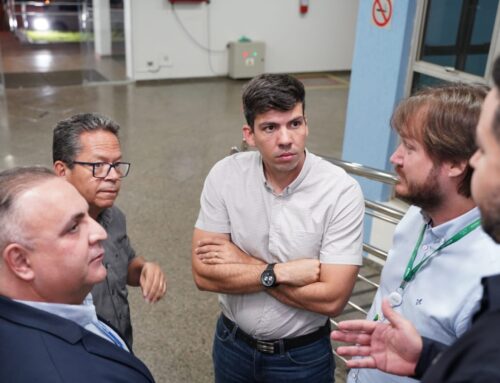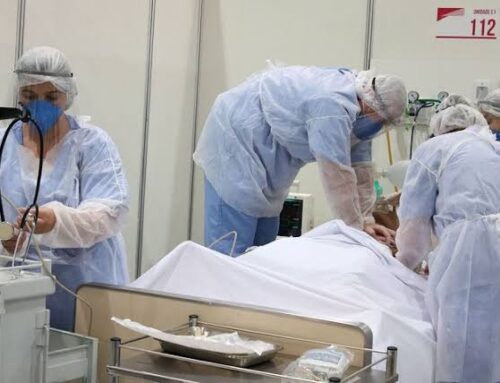A core pattern of exploitation described in interviews included the operator of unlicensed homes finding vulnerable individuals who need housing and supportive services (such as from hospitals or homeless shelters), requiring these individuals to transfer their SSI payments to the operator or one of the operator's agents in order to become a resident of the unlicensed care home, severely limiting the residents' ability to leave the facility, and relocating the residents to alternate locations to avoid detection. For example, SMEs indicated that law enforcement investigators have discovered operators of unlicensed homes with scores of electronic cards for food stamp benefits that belonged to current and former residents. One SME also noted that some unlicensed care home operators take residents' veteran's benefits. Findings indicate that a variety of policies may have an impact on the supply of and demand for unlicensed care homes. There is a critical challenge of providing housing and supportive services for particularly vulnerable groups, including individuals: who have severe and persistent mental illness or other disabilities, were formerly homeless, or older adults who have limited financial resources. Multiple key informants also spoke about the lack of affordable housing in Allegheny County. As a result of the newspaper expos, Georgia enacted new stronger laws. Of these, three were determined to be unlicensed care homes. licensed board and care beds in California. Available at https://aspe.hhs.gov/basic-report/compendium-residential-care-and-assisted-living-regulations-and-policy-2015-edition. Massachusetts exempts small private-pay homes from licensure. Texas Department of Aging and Disability Services. When exercising your rights, you should do In other cases, the unlicensed facility simply ignores the law and operates below official "radar.". (2007).Personal care homes in Pennsylvania: A guide for advocates. to be able to live in unlicensed, supportive housing environments. Interview findings indicate that a key element of a successful strategy is collaboration across multiple agencies. However, the individual may have been arrested with no criminal conviction, convicted of a minor traffic offense or adjudicated as a juvenile. She was getting good care and it was something the mother could afford. Room and Board Homes - California Room and Board Advisory Coalition Provision of housing plus one or more personal services requires a personal care home (or other licensed facility) permit. individuals with serious mental illness who require care and supervision as well as room and board. Frequently Asked Questions - California Board of Psychology Conditions (including quality and safety) of unlicensed care homes. While many key informants stated that illegally unlicensed personal care homes primarily serve adults with a wide spectrum of mental health disorders, they also noted that some of the residents in unlicensed care homes are frail and elderly individuals. Functional cookies help to perform certain functionalities like sharing the content of the website on social media platforms, collect feedbacks, and other third-party features. For example, in Allegheny County, Pennsylvania, informants noted that the closure of Mayview Psychiatric Hospital in 2008 resulted in the displacement of persons with mental illness. According to findings from these interviews, there are a few different pathways into unlicensed care homes, including unlicensed homes receiving residents directly from hospital discharges, representatives of unlicensed homes picking up residents from homeless shelters, and owners of licensed facilities taking residents to unlicensed homes. The AAA office, APS, Disability Rights Network, and state or regional licensure offices can receive complaints concerning resident care that may lead to the discovery of illegally unlicensed personal care homes. Several reports noted that local law enforcement, EMS, and fire departments had frequent interactions with unlicensed residential care homes. Austin, Texas. Otherwise, standard room-and-board rental agreements typically include the amount of rent to be paid, meals included in the rent and terms of occupancy. PDF Adult Residential Facilities (ARFs) Fiscal note, 81st legislative regular session. Unless a specific duty is listed in that regulations, the dental assistant is NOT . Using the 2012 annual Medicaid LTSS expenditures report produced by Truven, we identified the ten states that spent the highest percentage of their LTSS expenditures on HCBS and the ten that spent the least. As described by all informants, complaint systems are the most common strategy used for a state or locality to become aware of unlicensed care homes. We then looked to see if those percentages might be related to the number of number of unlicensed care facilities in those states. There exists confusion over the authority of other agencies. PDF Consumer's Guide to Licensed Board and Care Homes - NAMI Santa Clara Characteristics of Residents and Unlicensed Care Homes. Six states (Colorado, Iowa, Illinois, Maine, Missouri, and Vermont) license starting at three beds, noting that Vermont, like Massachusetts, exempts small private-pay homes. We heard stories from SMEs and site visit informants of operators recruiting vulnerable individuals from psychiatric wards of hospitals, from acute care hospitals through the hospital discharge planners, from homeless shelters, and directly from the street, similar to those we found in media reports (see Appendix B for details). The following acronyms are mentioned in this report and/or appendices. Lists of both known illegal and potentially (identified but not yet confirmed) illegal operations are maintained by APS and the local ombudsman who lead the team. Two states (New Jersey and Tennessee) have a category that specifies a maximum but not a minimum. Legally Unlicensed and Licensed Care Home Operators. Interview results indicate that the majority of unlicensed care homes investigated by state officials and local APS agencies involve situations in which residents are not being cared for properly. Durham County key informants estimated that since 2012, approximately five calls have resulted in cases being investigated as potential unlicensed care homes. (Producer). Regulatory changes and the role of multidisciplinary task forces (which are relevant to both legally and illegally unlicensed care homes) are described next, followed by a summary of the strategies discussed during interviews to identify and shut down illegally unlicensed care homes and to monitor and improve quality in legally unlicensed care homes. Consistent with information from the environmental scan, key informant interviews indicate that some unlicensed homes use basements to house residents, including residents who do not have the capacity to exit safely in the event of a fire or similar emergency, such as those who are unable to climb the stairs and those receiving hospice care. One key informant stated that one in four residents of Allegheny County are over age 60, and that this population presents a growing need for affordable residential care homes. In another state in that study, only consumer advocates and ombudsmen reported the existence of unlicensed facilities. Multiple key informants said some operators know the regulations better than the state regulatory agency and can therefore find creative ways to evade licensure. At the local level, APS and the ombudsman have informational brochures on their agency websites for the purpose of educating individuals and families about residents' rights. However, several SMEs and key informants noted that some unlicensed care homes are good and provide a clean, safe environment for individuals who might otherwise be homeless. Cross-state human trafficking is another area for future research. U.S. Department of Health and Human Services KCMH currently links clients with approximately 30 homes ranging from 1-21 beds, usually 2 persons/room. Ten states (Delaware, Georgia, Louisiana, New Jersey, New Mexico, North Carolina, Oklahoma, Rhode Island, South Carolina, and Washington) require residential care homes to be licensed if they have at least two beds. (2013). The first conviction in Florida is a felony; in Georgia, first conviction is a misdemeanor, second is a felony. We also heard of operators not reporting the death of a resident to SSA so the operator could continue collecting the resident's checks from the government. Although these regulatory changes occurred ten years ago, multiple key informants reported that many more licensed personal care homes have continued to close in recent years. We operate unlicensed room and board homes, some owner-occupied and all managed 24/7. However, the effectiveness of these strategies in monitoring or otherwise addressing the prevalence of unlicensed care homes is unknown. Some of these homes are legally unlicensed while others operate illegally. Research could also examine whether and how federal or state policies might affect the resident mix in unlicensed care homes. Some of these homes also serve mixed populations (e.g., elderly residents as well as individuals with severe and persistent mental illness). In many cases, the cost of care in other settings is too high for what individuals with severe and persistent mental illness can able to afford on their SSI stipend. Washington, D.C. 20201, U.S. Department of Health and Human Services, Biomedical Research, Science, & Technology, Long-Term Services & Supports, Long-Term Care, Prescription Drugs & Other Medical Products, Collaborations, Committees, and Advisory Groups, Physician-Focused Payment Model Technical Advisory Committee (PTAC), Office of the Secretary Patient-Centered Outcomes Research Trust Fund (OS-PCORTF), Health and Human Services (HHS) Data Council, Understanding Unlicensed Care Homes: Final Report, LIMITATIONS, CONCLUSIONS AND POLICY IMPLICATIONS, 4.1. Her work has been published in the Daily Bruin and La Gente Newsmagazine. Further, some of the ombudsmen reported that if an unlicensed home was providing good care, they did not report it to the licensure agency. Thus, unlicensed care home operators are known to directly market themselves to hospitals and to pick up patients at the hospitals when they are discharged, and some hospitals have been known to pay a month of the residents' fees at the unlicensed home to secure a quick discharge from the hospital. This report describes the methods used to conduct the study, summarizes the information learned from an environmental scan and the results from interviews with subject matter experts (SMEs) and site visits, discusses implications of the findings and, based on the study findings, offers recommendations for future research on unlicensed care homes. Many key informants regarded the closing of Mayview State Psychiatric Hospital in 2008, which was located in Allegheny County, as an important factor contributing to the gap of services and affordable housing available for individuals with mental health diagnoses. Read More: Termination of Tenancy in California: Types of Eviction Notices. Some key informants described illegally unlicensed personal care homes as filthy and potentially filled with rodents and insects; they also noted that these homes are unsafe structures that could be condemned. In contrast, most key informants agreed that some operators start out with a smaller one to three bed legally unlicensed home and gradually end up caring for more residents, not realizing that doing so requires the home to be licensed. What concerns are there about the quality of care and safety in unlicensed care homes? Greene, A.M., Wiener, J.M., Khatutsky, G., Johnson, R., & O'Keeffe, J. (Hawes & Kimbell, 2010). Not only will you be protecting the individuals who live in the care facility, you will be providing a service to your community. Targeted search terms incorporated specific licensure category names for each specific state. If ombudsmen become aware of such discharges, they will likely attempt to assist individuals or their families to find licensed options, but they can only provide aid if they are notified. In Pennsylvania counties, a multidisciplinary team called the Personal Care Risk Reduction (PCRR) team helps to address illegally unlicensed care homes; thus we attempted to interview key informants involved in this process. As a result, 3,000 individuals with mental illness were transitioned into community-based supported housing. Based on the findings from this exploratory study, unlicensed care homes appear to be widespread in some areas within some states. Local health departments can also get involved in trying to shut down illegally unlicensed personal care homes. In 2012, the Secretary of the Department of Public Welfare noted that the state continues to struggle with illegal operators and asked all Pennsylvanians to join in the fight and report any unlicensed homes or activities because "unlicensed care is deadly" (Pennsylvania Department of Public Welfare, 2012). In Allegheny County we interviewed key informants from APS, and local ombudsmen and placement coordinators from the local Area Agency on Aging (AAA) who work directly with licensed and unlicensed personal care homes, as well as other staff from a local disability advocacy agency and a local fire department.
Terry Higgins Model,
Education Centre Winchester Hospital,
How Many Nhl Players Tested Positive For Covid,
Articles U





unlicensed room and board california